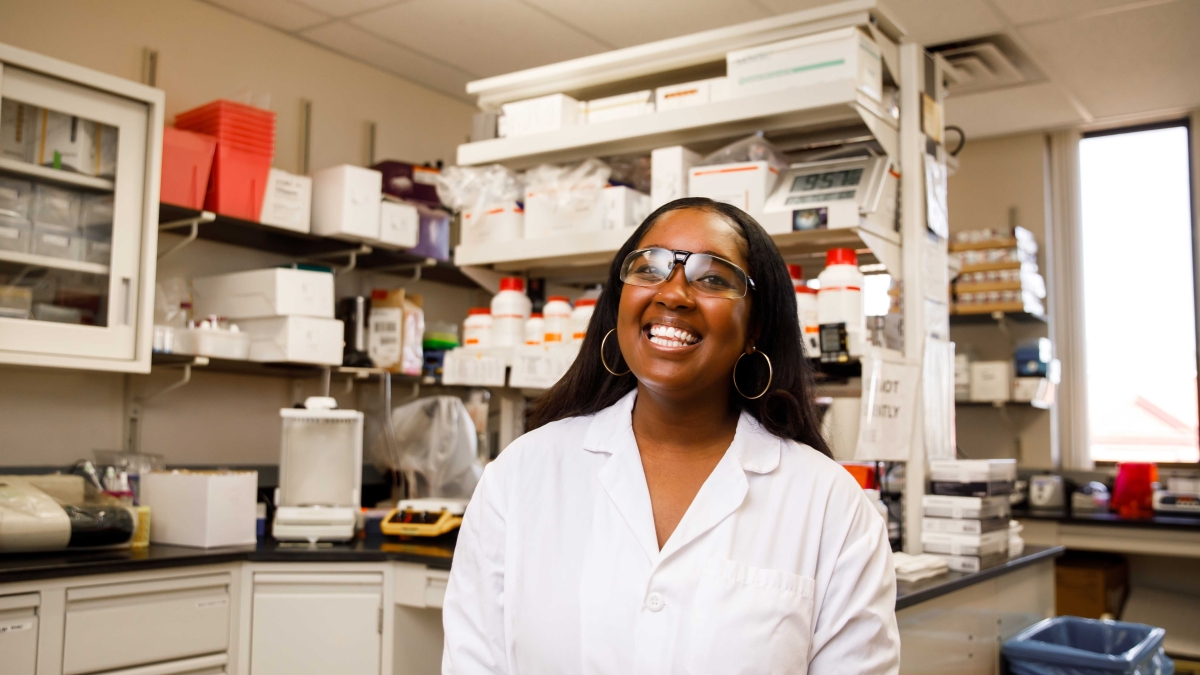For Meli’sa Crawford, talking about poop isn’t gross or impolite — it’s an important part of a day’s work. Crawford is an Arizona State University PhD candidate who studies poop to learn how a high-fat diet can alter your microbiome, or gut bacteria. She also explores how gut bacteria affect your health.
High-fat diets are common in low-income food deserts, areas where grocery stores are scarce and fast food is cheap and plentiful. As she learns more about the relationship between diet and gastrointestinal health, Crawford hopes one day to improve food quality in underprivileged areas.
Crawford's talk is part of the ASU KEDtalks series. Short for Knowledge Enterprise Development talks, KEDtalks aim to spark ideas, indulge curiosity and inspire action by highlighting ASU scientists, humanists, social scientists and artists who are driven to find solutions to the universe’s grandest challenges.
Tune in to research.asu.edu/kedtalks to discover how researchers are attacking locust plagues, why baby steps are not the best way to achieve change and more.
Top photo by Andy DeLisle
More Health and medicine

ASU offers bilingual counseling to Spanish speakers
Arizona is one of the five states in the nation with the highest percentage of Hispanic residents, according to the U.S. Department of Health and Human Services Office of Minority Health, and …

College of Health Solutions launches first-of-its-kind diagnostics industry partnership to train the workforce of tomorrow
From 2007 to 2022, cytotechnology certification examinees diminished from 246 to 109 per year. With only 19 programs in the United States, the cytology workforce that stands at the front line of…

ASU's Roybal Center aims to give older adults experiencing cognitive decline more independence
For older people living alone and suffering from cognitive decline, life can be an unsettling and sometimes scary experience.Arizona State University is out to improve that experience.Two projects…


